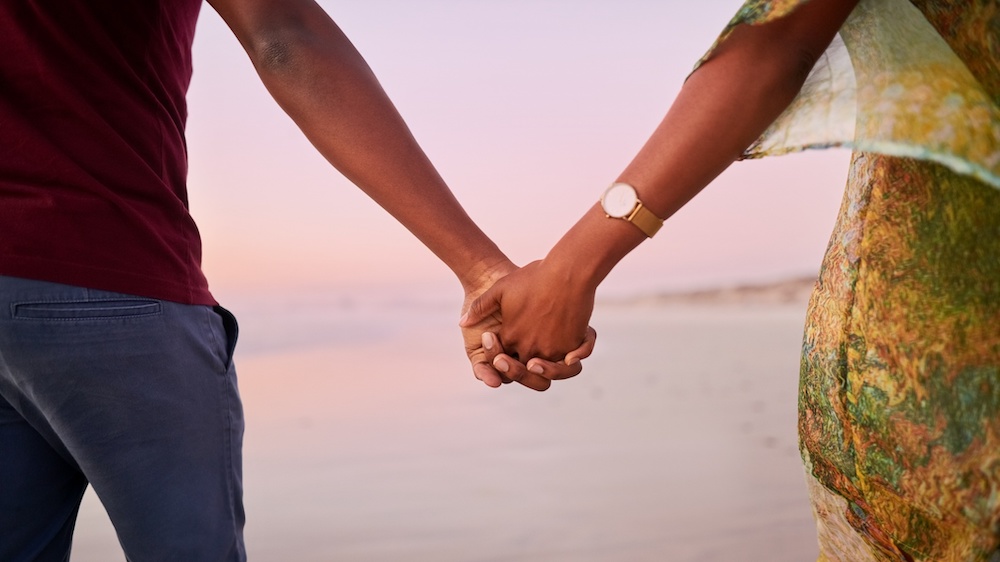If you’re interested in sharing your opinion on any cultural, political or personal topic, create an account here and check out our how-to post to learn more.
____
On Valentine's Day, my wife and I, like many African American couples, flooded the movie theater to see Issa Rae's new film, The Photograph, receiving a close look at #BlackLove or #RelationshipGoals. But I wonder, do we as a people know what real love is?
For centuries, America has waged a war against Black love. In the cotton fields of past days, we jumped over brooms; yet our marriages went unrecognized by the states. Decades later, government entities systematically employed strategies like the Moynihan Report, the Welfare System and the War-on-Drugs that caused division within Black families. Being Black in America has conditioned us to see Black love as an oxymoron.
Nowadays, Black communities pass down heirlooms of dysfunctional relationships to future generations. We internalize and consume rap narratives and reality TV storylines, modeling behaviors that make love futile. So when "we are alone in our rooms, staring at the wall in the back of our minds, we no longer hear our conscience call." Instead, we live out distorted images of the playa and THOT.
Throughout the years, America conditioned African American lovers to see dysfunction as usual in romantic relationships. In my English class, we compared Harlem Renaissance writer Zora Neale Hurston's Sweat to images of Black love produced in hip-hop and so-called reality television. My students were blind to Hurston's showing of invisible forces of racism and toxic masculinity that created the abusive love between the characters Delia and Sykes. To my surprise, many students argued relationships have to have a certain amount of toxic, abusive and drama to be considered “real.” One male student said, “A relationship without a hint of chaos would seem like a joke or fake." Many students said they even plan for drama, knowing it will eventually happen. How could they not think of Black love this way?
Growing up in the hood, I did not see many positive relationships between Black men and women. It seemed to me couples put a little bit of arsenic in their morning cup to add spice to their relationship. Also, my former guilty pleasures of Love & Hip Hop, Real Housewives of Atlanta and Basketball Wives show couples acting like cannibals trying to devour each other’s identities. In other words, men and women try to force their partners to become images of themselves. Then, they come to hate these partners because they hate themselves.
I do not know why I chose to consume those shows. Perhaps, it was because there are few depictions of healthy Black love. What’s so sad about this is, ordinary Black people accept these poorly pieced-together stories and try to hashtag their relationship out as mini soap operas on social media.
I’m not holier than thou; I did the same thing back in the day. I thought my soulmate would be the missing puzzle piece to complete me. I expected her to do the work I was afraid to do for myself. Put differently, I wanted to hold someone else accountable for my happiness. I had to seek out mental and spiritual help to unlearn my diseased thoughts on love.
I came to realize love is not the Hallmark image of two lovers running through the tulips. Nor is it two sex-crazed lovers seeking sexual-healing while eating chocolate-covered strawberries and pulling back 50 shades of grey. Love is about overcoming one's trauma and fear and having the courage to give someone who has done their work the manual to your heart. Because too many times we expect our significant others to be Professor X, a comic book telepath, but we have to show people how to love us.
I firmly believe our failures at love have to do with our lack of vision. Without a plan, most things will fail. I am not talking about a flimsy checklist such as six-pack abs, a six-figure salary or an outrageous twerk shaker. For Black love, we need a mission statement, giving our relationships a definite purpose.
Most people get into relationships to appease our need for social clout. We fall in love easily without learning our lover's social security number or love language. Why? Because we learned to love by only going with the flow. We recook our parents’ or best friends’ struggle meals or old recipes, knowing that they suck when it comes to love. A purpose-based relationship allows for individuality between two partners and to strive for the same goal.
So, before we embark on the commercialized days of love, I hope brothers and sisters will unplug. I hope we click “unlike” to our conditioning, click “unlike” to social media relationships, click “unlike” to our lived and historical trauma, and learn to love ourselves and each other.
Over the years, my wife and I have learned to hold ourselves responsible for our happiness. We create and control our narrative of Black love, always striving to be our best selves for one another. Yes, we are far from perfect, but we have a clear vision for our relationship and a new hashtag goal: #BlackLoveIsSelfLove.
____
Dr. Jessie L. Adolph is an English Professor of African Diaspora Studies at Lincoln University in Jefferson City, Missouri and the lead vlogger of Dad Cypher on YouTube.
